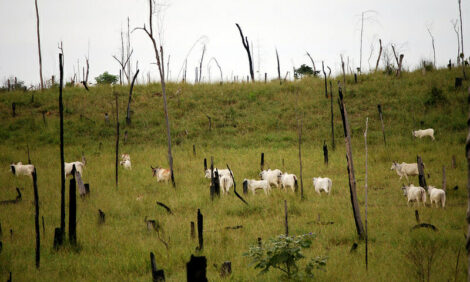



Welsh Farmers Reminded of TB Compensation Changes
WALES, UK - Wales' Deputy Minister for Farming and Food, Rebecca Evans, has reminded farmers that from 1 April the new TB Order will come into force changing the way they are compensated for cattle slaughtered for TB.The changes are intended to reduce the risk of the disease spreading by encouraging best practice and follows a consultation with the industry.
The changes provide the Welsh Government further powers to reduce compensation where a person has not followed the rules on testing and cattle movements. Cattle keepers will always be paid the slaughter value of the animal as a minimum and payments will be capped at £15,000 per animal.
Rebecca Evans said: “These changes will penalise a minority of cattle keepers who undertake risky practices, such as failing to present cattle for testing, valuation or removal, which can contribute to the spread of TB. In these cases, compensation could be reduced by up to 95 per cent.
“The vast majority of farmers abide by the rules and are working with us to eradicate this disease. For these people, little about how their animals are valued or compensated will change in the vast majority of cases full compensation based on market value will continue to be paid.”
Also launching on April 1 is www.ibTB.co.uk, a new website which provides information on locations of TB breakdowns to help people make informed decisions on how they can protect cattle and other animals from TB.
The TB Order was changed last year to allow the Welsh Government to publish details of herds affected by bovine TB. The aim is to provide information to help reduce the risk of the disease spreading locally and through cattle movements.
Chief Veterinary Officer for Wales, Christianne Glossop, said: “One of the primary goals of our TB Eradication Programme is to prevent the disease spreading to TB-free farms.
“We aim to provide as much information as possible about potential TB risks to those making purchasing and other cattle movement decisions. I encourage people to use this information to take precautions to reduce the risk of TB spreading.”
TheCattleSite News Desk


